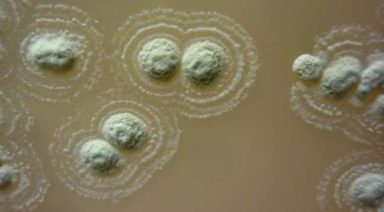Alternative Protocol Could Prevent, Reverse Alzheimer’s Disease

Alzheimer’s disease is on the rise and has become one of the more alarming public health issues. But what if, by using a holistic approach to treating this disease, there was a way to prevent and reverse the onset of Alzheimer’s?
Researchers have studied the disease for over a century, and while they’ve come to understand the mechanisms that lead to Alzheimer’s, there haven’t been significant breakthroughs in finding a viable treatment to prevent patients’ decline into dementia and death. Dr. Ilene Naomi Rusk is a behavioral neuroscientist and co-director of the healthy brain program in Boulder, CO, who has focused her life’s work on the disease.
Dr. Rusk is one of many doctors who now ascribe to the protocols of Dr. Dale Bredesen, which shows that a personalized, holistic approach to Alzheimer’s can not only prevent the disease but even reverse its onset in early phases. But when she began her work, they were looking for one single cure.
“I started in this field in the ‘80s looking at single-targeted strategies for dementia thinking that there would be a silver bullet because that’s the way we thought — receptors, specificity, working with a targeted approach to one brain chemical, for example, acetylcholine would be the answer,” Dr. Rusk said. “It turns out, it isn’t the answer, so there’s a background. All of this new and exciting work in dementia is because we have a foundation of what doesn’t work. If you spoke to any neurologist, any neuropsychologist, any physician they would say ‘No, we don’t really have anything that’s disease-modifying for Alzheimer’s disease, and nothing that slows progression.’ It certainly lends credence to a new approach, and the new approach to me emerged in 2016 when I read a paper by Dr. Bredesen.”
In a proof-of-concept trial, Dr. Bredesen looked at 25 patients suffering from Alzheimer’s disease and evaluated their cognitive ability before and after they followed protocols that focused on a number of lifestyle and environmental factors believed to contribute to Alzheimer’s.
“So some of those root causes are nutritional imbalances; difficulties with gut health; toxins in food, air, and water; things like mold (and) air pollution; the effects of combined prescription medication, polypharmacy for example. I’d say there are external mediated factors too, root causes and modifiable contributors like how much we exercise, I said the food we eat, but the nutrition we derive from the food we eat as well. Remember that Alzheimer’s disease particularly seeds itself very early, so the amyloid and tau begin to create problems up to 20+ years prior to the actual clinical symptoms of the disease,” Dr. Rusk said.
Interestingly, dr. Bredesen found that a large contributor to Alzheimer’s was a lack of neuroplasticity, or the brain’s ability to grow new neural pathways. Neuroplasticity has been found to be boosted by activities that challenge the brain, particularly those that fall outside our daily habits and routines.
“Neuroplasticity requires a challenge, what I like to call a disorienting dilemma for the nervous system, which means stress — which means good stress. Good stress provides healthy neuroplastic change, bad stress provides negative neuroplastic change,” Dr. Rusk said.
In addition to a lack of activity supporting neuroplasticity, improper sleep has also been found to be a major factor in the onset of Alzheimer’s — so much so, that some studies have found a 20-30% increased risk in the development of Alzheimer’s and dementia in patients who don’t get sufficient rest.
“I think sleep is one of the most modifiable and important contributors. What happens at night, what we take to sleep with us, whether we’re stressed, whether we have sleep apnea — so if we’re losing oxygen at night and we’re a little bit hypoxic, we’re a little bit low on oxygen, that can really affect our brain health,” Dr. Rusk said. “Sleep is a huge contributor to cognitive decline and then to later dementia. Actually, a recent study has shown that sleep patterns in mid-life, so earlier in life prior to people getting dementia, contribute to later dementia risk. So basically if you’re getting, I think it’s less than seven hours of sleep, in your 50s or 60s it can contribute to later cognitive decline and dementia; you’re 30 percent more likely to get dementia later in life.”
As more research considers this personalized, multi-factor approach that assesses the various root causes of dementia, practitioners like Dr. Rusk says she believes we will be able to drastically reduce the number of new Alzheimer’s sufferers, with Dr. Bredesen going so far as to say we may someday eliminate it altogether.
Study Finds Optimists Live Longer Lives

New studies show that optimism is linked to living longer and those who feel younger rehabilitate from injury faster.
Health research has always been overwhelmingly focused on risk factors that may predispose people to disease and premature death. The ever-growing field of positive psychology, however, is focused on those positive attributes and behaviors which can, on their own, promote health and longevity.
One such recent study, by the Harvard Chan School of Public Health, looked at the trait of optimism, as experienced by a group of women ages 50-79, over the course of several decades.
The study was unique in that it studied a large cohort of people across a variety of racial and ethnic groups to understand whether optimism is affected by such social structures.
At the completion of this multi-year study, findings showed that the 25% of participants who displayed the most optimism were likely to have a 5.4% longer lifespan and a 10% greater likelihood of living beyond 90 years than those who were the least optimistic.
These results were found to have no correlation with race or ethnicity, and researchers found that lifestyle factors such as regular exercise and healthy eating, accounted for less than a quarter of the optimism lifespan association.





































